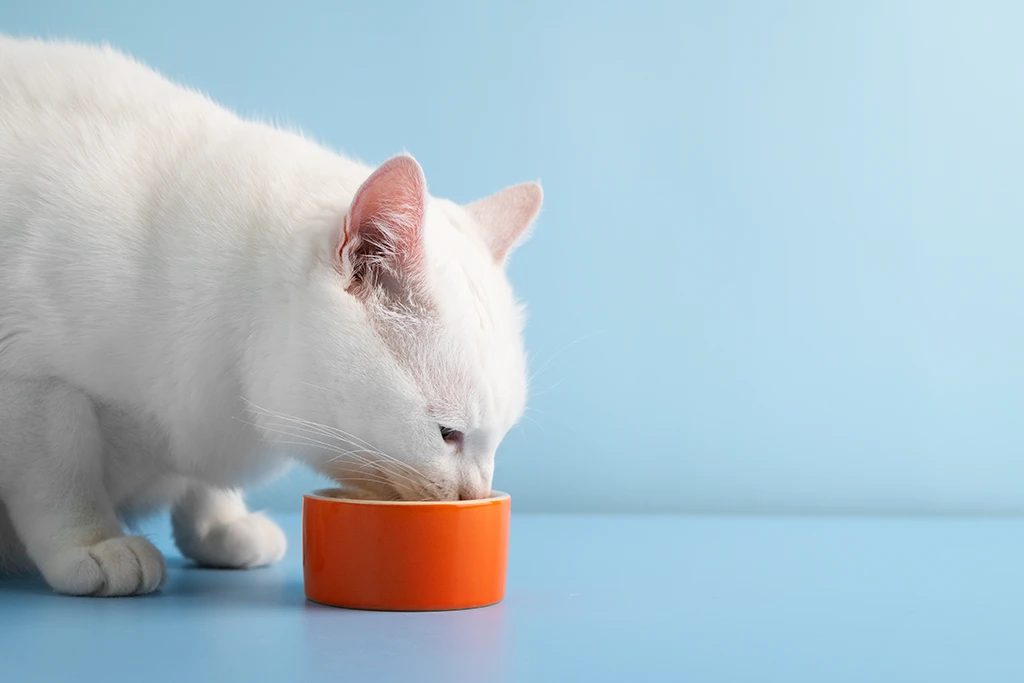

Dog insomnia is more common than most think, and it is a frustrating experience for both dog parents and their furry friends. A dog’s temperament, energy level, and even general health are impacted by insufficient sleep. If you’re a pet parent suffering from your dog pulling an all nighter and causing havoc around the house at midnight and looking for a natural way to help a dog sleep soundly, CBD oil offers a solution. This article explores the causes of dog insomnia, the potential benefits of CBD oil, and how to choose and administer it safely.
Table of Contents
ToggleA good night’s sleep is important for humans and it’s just as crucial for a canine companion. Sleep allows a dog’s body to repair and rejuvenate itself. It is indispensable for the regulation of hormones, the promotion of appropriate growth and development, and the preservation of a robust immune system. A well-rested dog is a happy dog! They’ll have more energy for playtime, be more alert and focused, and generally have a better quality of life.
On the flip side, chronic sleep deprivation leads to a host of problems.
Irritability and mood changes: A fatigued dog exhibits signs of irritability.
Weakened immune system: Lack of sleep makes a dog more susceptible to illness.
Cognitive decline: Similar to humans, dogs require sleep to sustain optimal brain function.
Increased anxiety: Sleep deprivation worsens existing anxiety or even triggers it in dogs who haven’t experienced it before.
There are many reasons why a dog is struggling to get their forty winks. A study showed that “Sleep disorders in dogs, such as narcolepsy, REM sleep behavior disorder, and sleep breathing disorders, negatively impact their cognitive and physical performance, immune response, and pain sensation,” (Mondino, A., et al., 2021). Some of the most common offenders are listed below.
Medical conditions: Arthritis, cognitive decline, allergies, and hormonal imbalances all disrupt sleep.
Anxiety and stress: Separation anxiety, fear of loud noises (like thunderstorms), or changes in their routine make it hard for dogs to relax and fall asleep.
Lifestyle factors: Problems sleeping are caused by a lack of physical activity, an unpleasant bedroom, or even a poor diet.
Age: Puppies are notorious for their erratic sleep schedules, while senior dogs often experience changes in their sleep patterns. An observational study showed that “Dogs aged 16 weeks sleep longer during the day but for less time at night than dogs aged 12 months, and most often sleep in a kennel/crate at 16 weeks and a dog bed at 12 months,” (Kinsman, R., et al., 2020).
A natural cure for a range of diseases in people and dogs, CBD oil has been becoming increasingly well-known. But how exactly does it help with dog insomnia?
CBD, short for cannabidiol, is a compound found in the hemp plant. In contrast to THC, the psychoactive ingredient in marijuana, CBD does not provide a “high.” Rather, it engages with the endocannabinoid system (ECS) of dogs. The ECS is a complex network of receptors and neurotransmitters that helps regulate various bodily functions, including sleep, mood, appetite, and pain sensation.
CBD oil is beneficial by interacting with the ECS:
Reduce anxiety and stress: CBD has been shown to have calming effects (Corsetti, S., et al., 2021)., which is particularly helpful for dogs with anxiety-induced insomnia.
Manage pain: If a dog’s sleeplessness is caused by discomfort from arthritis or other conditions, CBD’s pain-relieving properties help them rest easier (Luz-Veiga, M., et al., 2023).
Promote relaxation: CBD helps induce a sense of calm and relaxation, making it easier for a dog to fall asleep and stay asleep.

Determining the right CBD oil dosage for a dog is like navigating uncharted territory. It often involves a bit of detective work and close observation. The key factors to consider when finding that sweet spot dosage for a furry friend are listed below.
A dog’s weight plays a significant role in determining the appropriate CBD oil dosage. Think of it this way: a Great Dane needs a larger dose than a Chihuahua to experience the same effects. Generally, larger dogs require higher doses to achieve the desired therapeutic benefits. This is because their bodies have a larger volume to distribute the CBD, so a higher dose is needed to maintain an effective concentration in their system.
The severity of a dog’s insomnia also influences the dosage. A lower dose is adequate to assist a dog in falling slumber and relaxing if they are experiencing mild sleep disturbances. However, if their insomnia is more severe or chronic, a higher dose is usually necessary to address the underlying issues contributing to their sleeplessness.
Usually expressed in milligrams (mg) of CBD per milliliter (ml), CBD oil comes in several strengths. A higher concentration means that each drop or milliliter of oil contains more CBD. Therefore, if using a highly concentrated CBD oil, administer a smaller amount compared to a lower concentration product.
The golden rule is to “start low and go slow” in search of the ideal CBD oil dosage for a dog’s sleeplessness. Begin with a low dose and gradually increase it in small increments until positive changes in a dog’s sleep patterns are observed.
During this procedure, it is crucial to exercise patience and remain attentive. Keep a close eye on a dog’s behavior and any changes in their sleep quality. If any adverse reactions, such as drowsiness, changes in appetite, or gastrointestinal upset are noticed, reduce the dosage or consult the dog’s veterinarian.
Finding the optimal CBD oil dosage for a dog is an ongoing process. It necessitates careful monitoring and changes along the process. Keep a journal or log to track the dosage being given, the time of administration, and any changes observed in a dog’s sleep patterns and overall behavior. This assists dog parents in optimizing the dosage to identify the ideal level that yields the greatest benefit for a pet.
Remember, every dog is unique, and what works for one does not necessarily work for another. By approaching dosage with a cautious and observant mindset, dog parents help their dogs experience the full potential of CBD oil for their insomnia and pave the way for peaceful slumbers.

So, the perfect CBD oil for your dog is chosen. Now, how to get them to take it? The good news is that there are several ways to administer CBD oil to a dog, each with its own advantages and considerations. The most common methods are explored below.
Transmucosal administration (on the gums) by giving orally is the most common and generally effective way to give a dog CBD oil. It allows for faster absorption into the bloodstream, as the CBD bypasses the digestive system and enters the circulation directly through the mucous membranes in the mouth.
Using the dropper that comes with the tincture, place the desired amount of CBD oil under the dog’s tongue (sublingual). This allows for quick absorption into the bloodstream through the capillaries in the mouth.
Hold their mouth gently closed for a few seconds to ensure they swallow the oil. While this method is frequently the most effective, it is not be suitable for all dogs, particularly those who are sensitive to having their mouths handled.
If a dog is a bit finicky about taking CBD oil directly, try mixing it with their food or CBD biscuits. This helps mask the taste and make the experience more enjoyable for a furry friend.
However, keep in mind that this method has slightly delayed the onset of effects, as the CBD needs to pass through the digestive system before being absorbed.
While not typically the first choice for addressing insomnia, topical application of CBD-infused balms or salves is helpful for localized discomfort or skin irritations that are contributing to a dog’s sleeplessness.
These products are applied directly to the skin and are absorbed through the pores. They provide targeted relief for areas of inflammation or soreness.
The best method for administering CBD oil depends on the dog’s individual preferences and temperament. If they’re comfortable with having their mouth handled, administering the oil directly under the tongue is the most efficient option.
However, if a dog is resistant or has a sensitive palate, mixing the oil with food or treats is a more palatable approach.
Experiment with different methods to find what works best for parents and furry friends. And remember, patience and positive reinforcement go a long way in making the experience stress-free both ways!
While CBD oil is a valuable tool in addressing a dog’s insomnia, it’s not a magic bullet. Think of it as one piece of the puzzle. To truly set the stage for restful nights, it’s essential to create a calming and consistent bedtime routine for a furry friend.
Just like humans, dogs thrive on predictability and routine. A regular sleep schedule, a peaceful environment, and some soothing pre-sleep activities work wonders in promoting relaxation and improving sleep quality.
Consistency is key when it comes to regulating a dog’s sleep-wake cycle. Try to maintain the same bedtime and wake-up time each day, even on weekends. This helps regulate their internal clock and makes it easier for them to fall asleep and wake up naturally.
Think of it like training their body to recognize when it’s time to wind down and when it’s time to rise and shine. Of course, there is an occasional exception, but sticking to a consistent schedule as much as possible makes a big difference in their sleep patterns.
Imagine trying to sleep in a noisy, brightly lit room. Not very relaxing, right? The same goes for a dog. Their sleeping area is a haven of peace and tranquility.
Make sure their bed is comfortable and cozy, the room is quiet and dimly lit, and there are no distractions like toys or other pets vying for their attention. A white noise machine or calming music also helps drown out any disruptive sounds and promotes relaxation.
Just as humans enjoy a warm bath or a good book before bed, incorporating some relaxing activities into a dog’s bedtime routine helps them unwind and prepare for sleep.
A gentle massage, a leisurely stroll around the block, or some quality cuddle time all contribute to a sense of calm and well-being.
The most important aspect of a successful bedtime routine is consistency. By consistently providing the dog with a predictable schedule, a calming environment, and some soothing pre-sleep activities, pet parents create an atmosphere conducive to restful sleep.
While CBD oil is generally safe for dogs, it’s always a good idea to consult the dog’s attending veterinarian before starting any new supplement, especially if the dog has any underlying health conditions or is taking other medications.
Be sure to seek veterinary advice if:
CBD oil shows promise as a natural aid for dog insomnia, offering a gentle and potentially effective way to help a furry friend get the rest they need. By understanding the causes of a dog’s sleeplessness and choosing the right CBD product and dosage, dog parents take a proactive approach to improving their sleep and overall well-being.
Remember, a good night’s sleep is essential for both humans and canine companions. With a little patience, love, and the potential support of CBD oil, dogs enjoy sweet dreams and wake up refreshed and ready to take on the day!
Get The Best Dog CBD Products for your pup today!
References

Table of Contents
Toggle